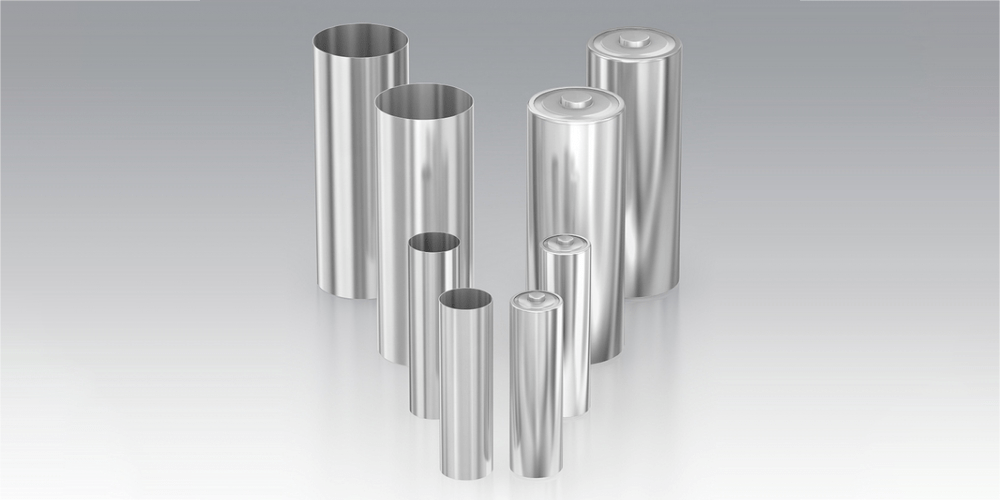Schuler to supply battery housing presses to LT Precision
German forming specialist Schuler has received an order for a production line capable of pressing battery cell housings. South Korean manufacturer LT Precision wants to install the new machines at its US factory.
LT Precision wants to produce cylindrical battery cell housings with a diameter of 21 millimetres and a length of 70 millimetres, i.e. 2710 or 21700 formats. Round cells of this size can be found inside the Tesla Model 3 and Model Y, but also in Rivian’s electric cars.
However, Schuler, in the press statement, only mentions that the battery cell housings “will be used in electric cars from various manufacturers”. Production is scheduled to start on the line in 2024.
As for manufacturing, the first press initially cuts round blanks from nickel-plated sheet steel and forms them into so-called cups during the same process step, the supplier informs. Schuler claims a 90% material utilization rate. The cups are then deep-drawn, ironed and trimmed in the automatic stamping presses. Six parts per machine fall onto the outfeed conveyor at any one time. The last operation is washing the cell casings.
The line ordered by LT Precision has a capacity of 2,000 cases per minute, says Schuler. That corresponds to “half the battery cells installed in an average electric car”. In other words, in two minutes, the plant can produce enough cell housings to make the 2170 battery cells for one electric car.
Schuler remains relatively new to the emobility industry but has moved towards it over the last five years. The forming specialist acquired the Italian machine manufacturer Sovema last year in order to become a system provider in battery cell production for the automotive industry and other sectors, as reported. Its line-up includes equipment to produce laminations for electric motors and manufacture fuel cells and electrolyzers for the hydrogen industry.
With reporting by Sebastian Schaal, Germany.




